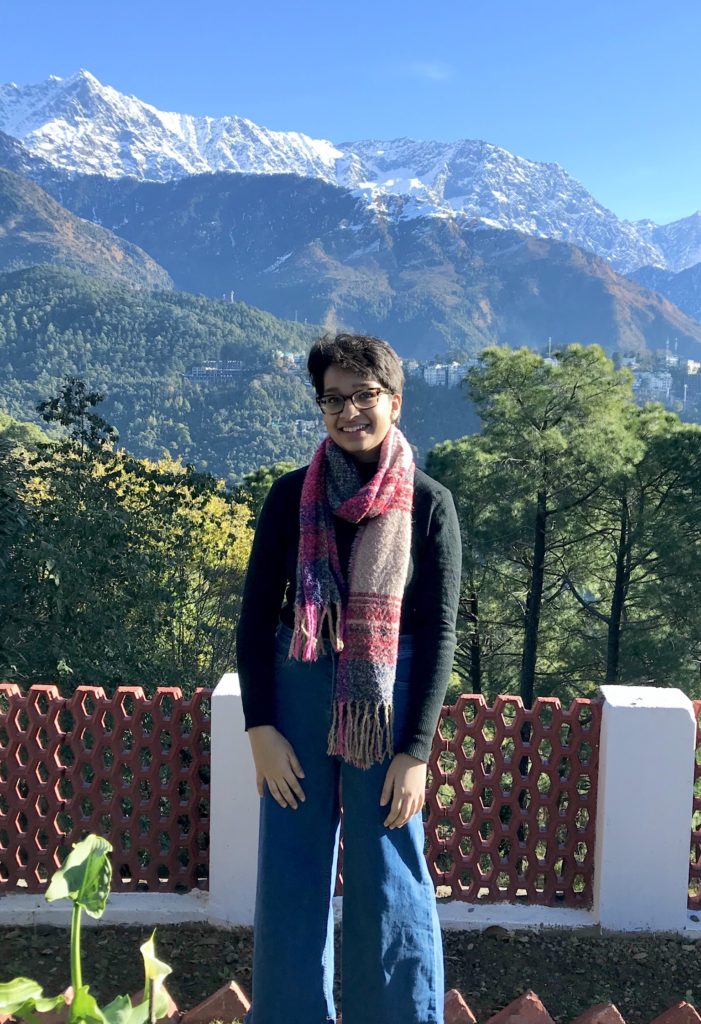Zobia Salam
The flaming red of the headscarf matched the defiance of her pointed finger, as Ayesha Renna, a student of Jamia Millia Islamia sent out a clear message to the Delhi Police personnel attacking her male friend – no. Ever since, she and female students across universities in the country have become the defining symbol of student resistance against the state. The significance lies not in women students resisting – for many, the act of moving out of their houses to gain an education is itself an act of resistance – but in how their resistance has upended the ‘protection myth’ surrounding women.
One of the earliest messages that gendered socialisation delivers to us is that as the weaker sex, women and girls must be protected by men and boys. Additionally, as the ones with strength, it is men who can protect the loftier institutions and by extension, mightier political and societal values. If women cannot be expected to protect themselves, how on earth can they be expected to protect the constitution, the values of freedom, justice and equality?
This trope is what young women across campuses have turned on its head today. In the past few months have witnessed an unprecedented attack on educational spaces, especially university campuses. An attack conducted both from the front lines, through physically attacking students, as well as from backdoor policies aimed at dismantling the idea of accessible education by privatising it. At the frontline of defence are women. Testimonies from male students describe how their female classmates were the reason why they escaped unhurt in the midst of a brutal police lathi charge. There are striking images from countrywide campus protests against the unconstitutional Citizenship Amendment Act (CAA) where women link hands to form the perimeter across the protestors, protecting them from potential and actual police violence.
The logic is simple: to combat patriarchy and the patriarchal state, patriarchal norms must be twisted to their own detriment. The premise is that since they are weak and defenceless, it is out of the question for force to be used against women protestors – the hands of the state are tied. By creatively knotting these counteractive norms, women students have been able to transgress both of them together.
While it would be artless to gloss over instances of violence against female protestors at the hands of the (male) police and (male) vigilante groups masquerading as students’ organisations, we may do well to look at the character of such violence. Such attacks are often carefully carried out where the public eye cannot reach: streets with streetlights shut off, inside women’s hostels, behind bars. A patriarchal state’s legitimacy rests on controlling its young women. Overt labelling as ‘weak’ and the covert use of brute force are two sides of the same coin.
And yet, women students bruised, battered and bandaged, continue to lead resistance. Pinjra Tod, a grassroots feminist organisation comprised of young women students, active across universities of New Delhi, has been at the forefront in organising protests across the city to ‘reclaim’ their streets, their city and their idea of this nation. Aishe Ghosh, President of the Jawaharlal Nehru University Students’ Union (JNUSU), shows the same blazing defiance to state as she did before being violently attackedby masked intruders on her university campus. The message she sends out is unambiguous in its meaning: the university space is as much hers as it is anyone else’s and she has the right to it without needing any ‘protection’. Through such moments, women students are reminded of the multidimensional attack educational spaces are under – physically, by vigilantes and otherwise, by fund cuts and pushes towards privatisation, moves which hurt their chances of gaining a better education more.
Perhaps, then, resistance has become habitual for them. Perhaps education is defiance. Perhaps the history of women’s exclusion from these spaces is what makes the stake more personal for them. Perhaps a complete freedom is the only way they can assure themselves of any ‘protection’. Perhaps

Zobia Salam is a final-year undergraduate student at the Department of Political Science, Lady Shri Ram College for Women. Unhealthily obsessed with long sentences and trivia, she is also deeply interested in questions about gender, media and cultural criticism in which she looks to possess a perspective before an opinion.
